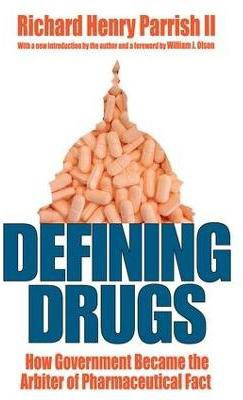Defining Drugs(English, Paperback, Parrish II Richard Henry)
Quick Overview
Product Price Comparison
Drug-related morbidity and mortality is rampant in contemporary industrial society, despite or perhaps because, government has assumed a critical role in the process by which drugs are developed and approved. Parrish asserts that, as a people, Americans need to understand how it is that government became the arbiter of pharmaceutical fact. The consequences of our failure to understand, he argues, may threaten individual choice and forestall the development of responsible therapeutics. Moreover, if current standards and control continues unabated, the next therapeutic reformation might well make possible the sanctioned commercial exploitation of patients. In Defining Drugs, Parrish argues that the federal government became arbiter of pharmaceutical fact because the professions of pharmacy and medicine, as well as the pharmaceutical industry, could enforce these definitions and standards only through police powers reserved to government. Parrish begins his provocative study by examining the development of the social system for regulating drug therapy in the United States. He reviews the standards that were negotiated, and the tensions of the period between Progressivism and the New Deal that gave cultural context and historical meaning to drug use in American society. Parrish describes issues related to the development of narcotics policy through education and legislation facilitated by James Beal and Edward Kremers, and documents the federal government's evolving role as arbiter of market tensions between pharmaceutical producers, government officials, and private citizens in professional groups, illustrating the influence of government in writing enforceable standards for pharmaceutical therapies. He shows how the expansion of political rights for practitioners and producers has shifted responsibility for therapeutic consequences from individual practitioners and patients to government. This timely and controversial volume is written for the scholar and the compassionate practitioner alike, and a general public concerned with pharmacy regulation in a free society.


